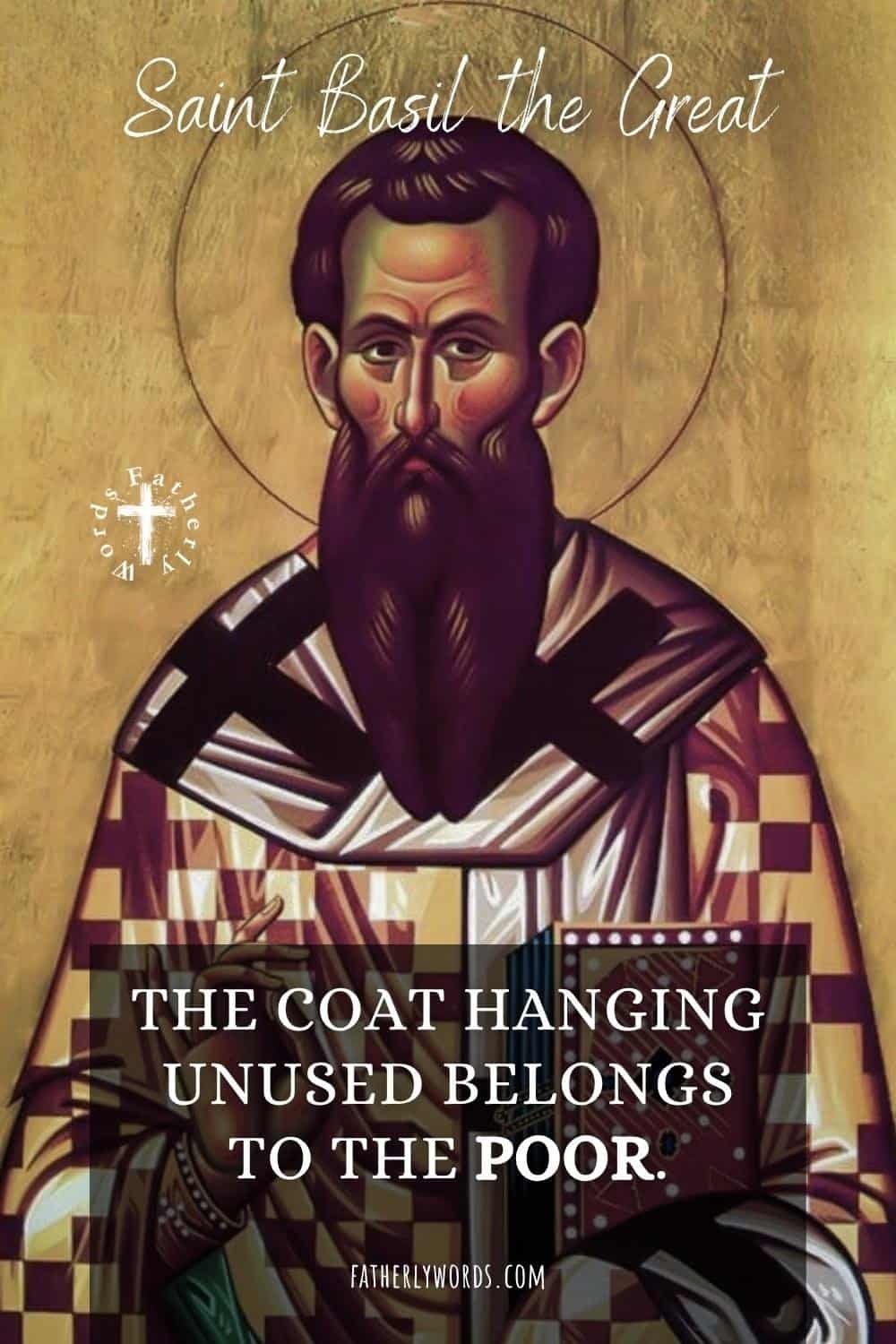Greed is one of the most subtle and destructive passions of the human heart.
In Orthodox Christianity, it is considered a root from which many other sins spring. It hides behind respectability, disguising itself as prudence, diligence, or success.
Yet beneath its mask lies spiritual death, because greed replaces trust in God with trust in possessions.
The Lord Himself warned clearly:
“You cannot serve God and mammon.”
Matthew 6:24
To serve money is to enslave the soul to what perishes. The one who loves riches cannot truly love God, for the heart cannot hold two masters.
In Orthodox Christianity, greed is not condemned because material goods are evil, but because they become idols when loved above all else.
Wealth in itself is not sin; the sickness lies in attachment, in the soul’s thirst for more, its fear of losing, its forgetfulness of the poor.
The Root of Greed Is Forgetting God
Greed begins when the soul forgets that everything it possesses is a gift from God.
When man ceases to see himself as a steward and imagines himself as an owner, pride takes root. The heart then clings to possessions as though they could give security and life.
The Psalmist writes:
“If riches increase, set not your heart upon them.”
Psalm 61:10, LXX
The heart must belong only to God, not to what fades.
Saint Basil the Great teaches:
“The bread in your cupboard belongs to the hungry, the coat hanging unused belongs to the one who needs it, the money you bury in the ground belongs to the poor.”
This is not a call to abandon all responsibility, but to remember that we are stewards of God’s gifts.
The rich man in the Gospel who built bigger barns to store his crops forgot this truth. God said to him:
“Fool, this night your soul is required of you; then whose will those things be which you have provided?”
Luke 12:20
Greed blinds the soul to eternity. It makes man live as if he will never die.

The Subtle Faces of Greed
Greed is not always visible. It can live in a poor man as easily as in a rich one. It hides in anxiety, in stinginess, in envy, and even in excessive planning for the future. A person may possess little yet still be enslaved to desire.
Saint John Climacus writes:
“The lover of money sneers at the Gospel and calls the commandment of God foolishness.”
When greed takes hold, every commandment of Christ seems impractical. The generous heart is mocked, and the idea of sacrifice appears unreasonable. This distortion of values is one of the devil’s most effective weapons.
Greed begins with a thought—“I need more”—and ends with the death of compassion. When man places himself at the center of everything, he forgets that others also bear the image of God.
Greed and the Death of Compassion
The tragedy of greed is not only its injustice but its coldness. It hardens the heart until it can no longer feel the suffering of others. The greedy soul becomes deaf to the cries of the poor and blind to the needs of its neighbors.
Psalm 48 reminds us:
“Man being in honor did not understand; he is compared to senseless beasts.”
Psalm 48:12, LXX
When love of money consumes the heart, man loses his spiritual sight and becomes like a creature driven only by hunger.
Saint John Chrysostom said:
“Not to share one’s wealth with the poor is to steal from them and to take away their livelihood.”
In Orthodox Christianity, charity is not optional. It is the natural fruit of love. To hoard while others hunger is to deny the Gospel. Greed kills charity because it feeds the illusion of self-sufficiency.
Greed and the Illusion of Security
Many justify greed by calling it foresight or prudence. They say, “I must secure my future.” But no earthly treasure can guarantee safety. Death comes without warning, and what we cling to most tightly will be left behind.
The Lord said:
“Lay not up for yourselves treasures upon earth, where moth and rust consume and where thieves break through and steal.”
Matthew 6:19
True security lies only in Christ. The believer who trusts in possessions lives in constant fear: fear of loss, of change, of others’ success. The one who trusts in God, even if he has nothing, possesses peace.
Saint Isaac the Syrian said:
“He who trusts in riches is a stranger to the hope of God.”
Greed enslaves not only the hand but the mind. It binds a person to anxiety. The more one acquires, the more one fears losing it. In this way, greed becomes its own punishment.

The Poison of Envy and Comparison
Greed never stands alone. It brings with it envy, jealousy, and constant comparison. The greedy person measures his worth by what others possess. Instead of gratitude, he feels bitterness; instead of peace, restlessness.
The Apostle Paul wrote:
“The love of money is the root of all evils; which while some coveted after, they have erred from the faith and pierced themselves through with many sorrows.”
1 Timothy 6:10
Envy is a wound that never heals because it is fed by endless comparison.
The Orthodox Christian path is the opposite. It is the cultivation of thanksgiving. Gratitude kills greed because it reminds the soul that all good things come from God and are meant to be shared.
Saint Dorotheos of Gaza taught:
“If a man gives thanks to God for everything, he will never know what it is to lack anything.”
This is the secret of freedom. A grateful heart cannot be greedy.
Simplicity as the Way of Peace
Orthodox Christianity calls believers to simplicity, not as poverty for its own sake, but as the path of peace. Simplicity means using what is needed and being content with what God provides. It is the opposite of the restless pursuit of more.
The Apostle Paul said:
“Having food and clothing, let us be therewith content.”
1 Timothy 6:8
Simplicity restores the balance between soul and creation. When man lives simply, he rediscovers joy in small blessings—the warmth of bread, the beauty of nature, the love of family, the presence of God.
Saint Seraphim of Sarov said:
“Acquire inner peace, and thousands around you will find their salvation.”
Greed destroys that inner peace. It makes life noisy, filled with endless desires. Simplicity quiets the heart, allowing the grace of God to dwell within.
The Spiritual Cost of Greed
The danger of greed is not only moral but spiritual. The greedy soul cannot pray with purity because its mind is divided. It remembers accounts instead of psalms, profits instead of the poor. Prayer becomes dry, and worship becomes empty.
The Lord said:
“Where your treasure is, there will your heart be also.”
Matthew 6:21
If the treasure lies in money, then the heart will live in the dust.
If the treasure lies in heaven, the heart will soar to God.
Greed extinguishes love for eternity. It is not wealth itself that condemns but attachment to it, the refusal to let go.
Saint Theophan the Recluse wrote:
“The man who is rich in spirit is not he who possesses much, but he who needs little.”
True wealth is the freedom of the heart. The more the Christian detaches from material things, the more he becomes capable of loving God and others.
Modern Views Versus Orthodox Christianity
- The modern world praises wealth as success; Orthodox Christianity values generosity as true greatness.
- The world measures happiness by possessions; Orthodox Christianity measures it by peace of soul.
- The world calls greed ambition; Orthodox Christianity calls it bondage.
- The world sees giving as loss; Orthodox Christianity sees it as gain in heaven.
- The world teaches comparison; Orthodox Christianity teaches thanksgiving.

- The world glorifies comfort; Orthodox Christianity glorifies contentment.
- The world worships luxury; Orthodox Christianity honors humility.
- The world values ownership; Orthodox Christianity teaches stewardship.
- The world forgets eternity; Orthodox Christianity lives for the life to come.
Freedom from Greed Through Charity
The antidote to greed is love expressed through charity. To give freely is to break the chains of attachment.
When the Christian shares what he has, his soul becomes light. The more he gives, the richer he becomes in grace.
Psalm 111 proclaims:
“He has dispersed, he has given to the poor; his righteousness endures forever.”
Psalm 111:9, LXX
The one who gives discovers that God multiplies his blessings. Generosity is the path of imitation of Christ, who gave everything—even His life—for mankind.
Saint John Chrysostom said:
“The rich man is not the one who has much, but the one who gives much; for what he gives remains his forever.”
Charity frees the heart from the tyranny of greed and teaches the soul that real wealth is love.
The Peace of Trust in God
To overcome greed, one must cultivate trust in divine providence. Every fear that fuels greed comes from forgetting that God provides for His children.
The Lord said:
“Behold the birds of the air: they do not sow, nor reap, nor gather into barns, and yet your heavenly Father feeds them.”
Matthew 6:26
When the believer learns to trust, his heart rests. He no longer fears tomorrow. This faith does not mean carelessness but confidence in the love of God. The one who trusts becomes generous because he knows he will never be abandoned.
Saint Porphyrios of Kavsokalyvia said:
“When you trust in Christ, you no longer worry about the future. Everything becomes light.”
Trust replaces anxiety with peace. It restores the heart to simplicity, where joy and gratitude flourish.
The Judgment of Greed
Scripture is clear that greed will face judgment. The Lord spoke of the rich man and Lazarus, showing the eternal consequence of selfishness. The rich man lived in comfort but ignored the beggar at his gate. After death, their roles were reversed.
The warning is severe, not to inspire fear but repentance. The Christian must see Christ in every poor and suffering person. To close one’s heart to them is to close the heart to Christ Himself.
The Lord said:
“Inasmuch as you did it not to one of the least of these, you did it not to Me.”
Matthew 25:45
Greed blinds man to this mystery of love. Repentance opens his eyes again. The true believer gives not only out of duty but out of love, for he recognizes in every needy person the image of God.
How Parents Can Explain Greed to Children
Parents can teach their children about greed in simple ways. They might say:
“When we love our toys or money more than people, our hearts become small. But when we share, our hearts grow big and happy.”
Children can learn that God gives everyone what they need, and that sharing brings joy. Parents can remind them of Christ’s words: “It is more blessed to give than to receive.” (Acts 20:35)
Through small acts—sharing food, giving to someone in need, helping a friend—children begin to understand that love is richer than any possession. They learn early that the happiest heart is the one that gives.